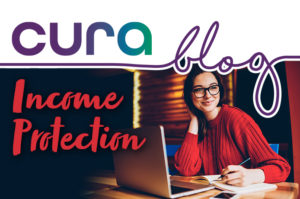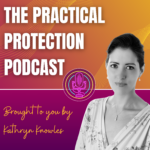Best Income Protection for the Self-Employed 2023
Request a Callback
By clicking on submit I / We give consent for you to call me / us on the number provided to discuss my / our financial requirements.
Caring - Understanding - Reliable - Advice
Home » Guides & News » Best Income Protection for the Self Employed 2023
 Best Income Protection for the Self-Employed 2023
Best Income Protection for the Self-Employed 2023
What do we all rely on? Money. It’s not great but it’s the truth. Everything that we do and have in life is linked to the money that we have. For many of us we get money by working and a big part of us being able to do that, is for us to be fit and well enough to work.
When you are employed you can sometimes have security of income protection from your employer, or at the very least statutory sick pay. When you are self-employed you have nothing to give you that buffer of supporting income. That’s why income protection is probably more important for self-employed people, than anyone else.
What is income protection
Income protection is a policy that will pay you part of your monthly income if you are ill and cannot work. There is a lot of jargon in income protection so here’s a breakdown of what you need to know.
- Monthly benefit – this is the amount that you are insured for and it’s often based upon a set percentage of your annual income. You can choose how much but it’s usually up to around 65% of your earnings.
- Deferred period – this is the height of jargon. It’s how long you have to wait from being ill and unable to work, before the insurer provides you with financial support. As a self-employed person you most likely want to be looking at a 4 week deferred period, maybe even a 1 week option.
- Claim period – this is how long a successful claim can pay out for. It could be 1 year, 2 years, 5 years, or all the way to your retirement.
- Policy term – this is probably going to match the age that you plan to retire. It’s quite common for this to be age 65, 68 or 70.
The beauty of income protection is that can pick and mix lots of different ways to set it up, by playing about with all of these things. You get to build the income protection policy in a way that suits you.
How much money can I insure?
Insurers will set a maximum percentage of your earnings that you can insure through income protection. The maximum is often around 65% but it can be higher or lower depending upon the insurer. You can choose anything up to the maximum.
Let’s look at some examples where you are earning £30k per year.
- £1,625 per month – 65% of your earnings.
- £1,200 per month – you pick this because it covers your main bills and the premium feels right for you.
- £900 per month – you pick this as you just want to cover your mortgage or rent payments.
Ideal world you will insure yourself for the maximum that the insurer offers, as this will give you the best chance to maintain your standard of living. It’s also important to bear in mind that we are not just talking about your income now, you also want to be thinking about having enough money to keep saving into your pension.
What is the cost?
This is completely individual to each person. There are so many factors that can affect the cost of your insurance.
- The higher the monthly benefit, the higher the cost.
- The shorter the deferred period, the higher the cost.
- The longer the claim period and policy term, the higher the cost.
Plus your age, smoker status, health, family medical history, occupation, travel and sporting hobbies, can all have an influence on the price.
Here are some examples of the cost of income protection for a 28 year old, earning £27,00 per year, with no disclosures that will affect the premium.
- £1,350 per month with a 4 week deferred period, active to age 68 prices at £34.46 per month.
- £1,350 per month with a 13 week deferred period, active to age 68 prices at £23.03 per month.
WATCH OUT! For reviewable and age-banded premiums. These will be far cheaper at first and be very tempting. But, they will become far more expensive over time. Let’s take a look at the first option here that is priced at £34.46 per month.
That is the price for a guaranteed premium that will never change. You could arrange the same income protection choice on a reviewable and age-banded premium of £17.57 per month. You are bound to think that £17.57 is the nicer looking option.
But what about the costs over time?
With the £17.57 per month premium you will pay £33,924.87 by the time the policy ends at age 68. Remember the premiums increase each year so by age 39 you are paying £34.98 per month, age 50 you are paying £75.05 per month and by age 55 you are paying £107.24 per month. At age 62 you are paying £140.26 per month!
But if we go with the guaranteed option from the start the premiums will be £34.46 per month and never change. The total that you will pay over the policy is £16,127.28.
By paying an extra £16.89 per month now, you are saving £17,797.59 in the long run.
Non-financially underwritten cover
Something that can be quite tricky for the self-employed is being able to show consistent earnings each year. You might take in £20k one year, £31k the next and then £28k the year after. This can make income protection a bit confusing as you are insuring a set annual income, but yours natural moves around a bit.
When you are self-employed insurers will usually take the average of your last 3 years earnings, to determine how much they can pay you at the point of a claim. This can work absolutely fine for a lot of people, but it can sometimes mean that a claim ends up being lower than people expect.
There is a potential solution for this. Some insurers offer non-financially underwritten income protection policies, which basically means that they will guarantee to pay you at least £1,000 or £1,500 per month, regardless of your earnings. So if your income drops below this, or your income never reaches that level, you can still get this amount of cover.
These types of policies can be really good for people that are self-employed and not earning much. The claim periods are usually set to a maximum 2 years per claimable event. This might be a good option for you, but there are lots of options for income protection and it is best to speak with an adviser before jumping in to these policies.
Our award winning advisers will find you the best income protection policy and insurer to match your needs. You can get a no obligation quotation from us today.
Related blogs
Categories: Income Protection
Client Reviews

"Alan and his team were great! Alan helped get me cover where my own company could not (I work in financial services too!) Would highly recommend and will come back in the future."


"Krystle was fantastic throughout and managed to knock almost 50% off my current life insurance premium."


"Leanne couldn't have been more helpful and thoughtful with her questions and work on my enquiry."


"Kathryn and her colleagues were very helpful because of my recent illness."


"Nick was my advisor, Excellent knowledge of products and what I needed, not just pushing me into a sale/policy, will always refer to him in the future."


"I would like to say a very big thank you especially to Amy you really went above and beyond."


"Annaliese was absolutely fantastic, making us both feel at ease and helping us navigate issues that had caused us problems with previous attempts to obtain insurance."


Talk to a Friendly Adviser
Please feel free to call us on 0800 567 7450 and one of our qualified insurance advisers will be happy to assist you.
Get a Quote
Please feel free to request a quote from us using our online form. The more information that you can provide us about your health conditions, hobbies, travel and/or occupation, the more accurate indications of price we’ll be able to give you.
What We Offer?
- Experienced and knowledgeable advisers
- Specialist advice with no fees to pay
- Full assistance with all of your paperwork
- Put your policy into trust at no cost
- A dedicated insurance adviser for you
Our Recent Awards





































